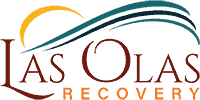
Addiction and Wellness: A Holistic Approach to Recovery
Addiction is a complex and challenging condition that affects millions of people worldwide. Often misunderstood and stigmatized, it's crucial to approach addiction with empathy, understanding, and a focus on holistic wellness. Addiction and wellness go hand in hand for people when they are in recovery. This is particularly true in the context of substance use disorder. People learn to care for themselves and nurture their body, mind, and spirit when sober.
Understanding Addiction
Addiction, or substance use disorder, is a chronic condition characterized by compulsive drug seeking, use, and continued use despite harmful consequences. It affects the brain's circuitry, leading to changes in behavior, cognition, and emotional responses. Addiction is not simply a matter of willpower or moral failing; it's a disorder.
Its causes come from a complex genetic, environmental, and psychological interplay.
Addiction Still Has Stigma
One of the most significant barriers to overcoming addiction is the stigma attached to it. Many people view addiction as a sign of weakness or lack of moral character, leading to shame and isolation for those struggling with it. However, addiction is a medical condition that requires treatment and support, not judgment or condemnation.
Holistic Healing’s Role in Addiction Recovery
Holistic healing is an approach that considers the whole person—body, mind, and spirit—in the quest for optimal health and wellness. It recognizes the interconnectedness of various aspects of life and seeks to address imbalances in all areas. When applied to addiction, holistic healing offers a comprehensive approach to recovery that goes beyond simply abstaining from drugs or alcohol.
The Importance of Physical Wellness
Physical wellness plays a crucial role in addiction recovery. A healthy body provides a strong foundation for overall well-being and resilience. Getting enough sleep, eating nourishing meals, and engaging in regular exercise can help restore balance to the body and mind. Exercise, in particular, has been shown to reduce cravings and improve mood, making it an essential component of a holistic recovery plan.
People in recovery learn to take care of themselves again. Here are some ways people in recovery can reclaim good health:
- Prioritize nutritious meals rich in fruits, vegetables, lean proteins, and whole grains to fuel the body and support recovery.
- Get enough sleep each night to promote healing, restore energy levels, and maintain overall well-being.
- Drink plenty of water throughout the day to support physical and cognitive function.
- Practice stress-reducing activities like meditation, deep breathing, or progressive muscle relaxation to manage cravings and promote relaxation.
- Attend regular medical check-ups and seek professional help for any health concerns or complications related to addiction.
Many treatment centers incorporate a few of these ideas into their programs. (Here at Las Olas, we prioritize healing and wellness.)
Embracing Emotional Wellness
Emotional wellness involves recognizing, accepting, and managing our feelings safely and healthily. For people struggling with addiction, addressing underlying emotional issues is often crucial to long-term recovery. Therapy, support groups, and mindfulness practices can help people develop coping strategies and build emotional resilience.
In recovery, it becomes apparent that people need people to help them through their journey. Connecting with other people at 12-step groups and other sober activities will help create healthy relationships and a foundation for life after treatment.
Nourishing the Mind and Spirit
Beyond physical and emotional wellness, nurturing the mind and spirit is essential for holistic healing. This may involve engaging in activities that bring joy and fulfillment, such as hobbies, creative pursuits, or spiritual practices. Cultivating a sense of purpose and connection to something greater than oneself can provide powerful motivation and support during recovery.
People in treatment will often learn tools to help them nourish their spirit. Simple activities like watching the sunrise or sunset over the ocean are breathtaking experiences that can inspire awe and gratitude. People in recovery often use the practice of mindfulness as a tool. They learn to witness the beauty of nature unfolding before them, listening to the sounds, reflecting on the interconnectedness of all living beings and the cycle of life.
Supportive Relationships and Community
Friendships are essential for emotional health in recovery from addiction. By cultivating supportive, authentic connections, people in sobriety can experience profound emotional growth, resilience, and a sense of belonging. Healthy friendships provide the foundation for lasting sobriety and a fulfilling life in wellness.
Recovery from addiction is not a journey that anyone should undertake alone. Building strong, supportive relationships and finding a community of understanding peers can provide invaluable encouragement and accountability. Surrounding oneself with people who believe in their potential for recovery can make all the difference.
Getting Help for Substance Use Disorder
If you or somebody you love has a substance use problem, we’re here to help. Our tranquil environment offers a safe place to detox and begin the healing journey of recovery. We’re here to help you with healthy meals, activities that engage the body and mind, and a lot of help along the way to healing. Learn more about going away to treatment in Mexico by calling us at (949) 279-1376 or Mexico (612) 153-5726.
